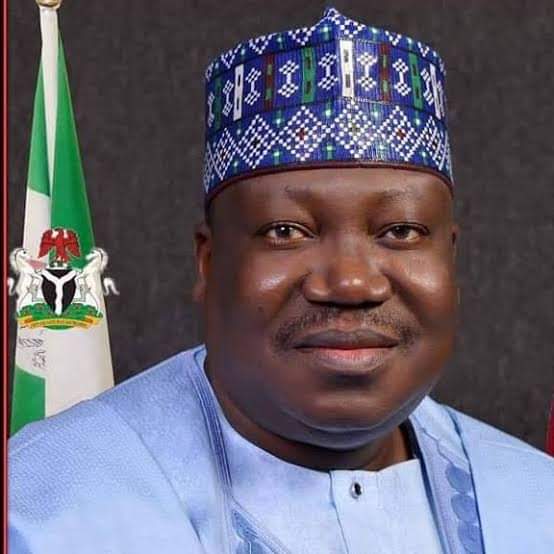
Sitting Presidents will no longer enjoy immunity in criminal matters if the alteration being proposed to the 1999 Constitution by the Senate sails through, The Nation learnt on Thursday.
Also to lose immunity is the Vice President, Governors and their deputies in the impending alteration.
This followed the second reading of a Bill titled: “A Bill for an Act to alter the provisions of the Constitution of the Federal Republic of Nigeria, 1999 to qualify criminal liability for certain public officers under Section 308” sponsored by the Deputy Senate President, Ovie Omo-Agege.
The explanatory memorandum of the Bill stated that: “This act provides for qualification of the immunity clause to exclude immunity for Public Officers referred to in Section 308 from criminal liability where the offence involves misappropriation of funds belonging to the Federal, State or Local Government and also the use of thugs to foment violence.”
Section 308 of the 1999 Constitution (as amended) reads: “(1) Notwithstanding anything to the contrary in this Constitution, but subject to subsection (2) of this section –
“(a) no civil or criminal proceedings shall be instituted or continued against a person to whom this section applies during his period of office;
“(b) a person to whom this section applies shall not be arrested or imprisoned during that period either in pursuance of the process of any court or otherwise; and
“(c) no process of any court requiring or compelling the appearance of a person to whom this section applies, shall be applied for or issued:
“Provided that in ascertaining whether any period of limitation has expired for the purposes of any proceedings against a person to whom this section applies, no account shall be taken of his period of office.
“(2) The provisions of subsection (1) of this section shall not apply to civil proceedings against a person to whom this section applies in his official capacity or to civil or criminal proceedings in which such a person is only a nominal party.
“(3) This section applies to a person holding the office of President or Vice-President, Governor or Deputy Governor; and the reference in this section to “period of office” is a reference to the period during which the person holding such office is required to perform the functions of the office.”
The proposed Bill provides that a President, Vice President, Governors and Deputy Governors shall lose their immunity if they are investigated by security and anti-graft agencies, including the courts.
The Bill said in part that: “Section 308 of the Principal Act is altered by (a) Substituting for subsection (2), a new subsection “(2)” –
“(2) The provisions of subsection (1) of this section shall not apply –
“(a) to civil proceedings against a person to whom this section applies in his official capacity or to civil or criminal proceedings in which such a person is only a nominal party; and
“(b) to persons who hold the office of Vice-President, Governor or Deputy Governor, if it is determined either by the Economic Financial Crimes Commission, Independent Corrupt Practices Commission, Nigerian Police and State Security Service through a collaborative investigation that the said person is indicted by a court of competent jurisdiction for:
“(i) Financial misappropriation of funds belonging to the Federal, State or Local Government; or
“(ii) Sponsoring of thugs to perpetrate violence that cause injury or death of political opponent, a member of his family, agent or personal representative.”
Also on Wednesday a Bill which prescribed a degree certificate as a minimum qualification for any one aspiring to the Office of the President also scaled second reading.
The Bill titled: “A Bill for an Act to alter the provisions of the Constitution of the Federal Republic of Nigeria, 1999 to provide for the amendment of Sections 65 (2) (a), 131 (d), Section 106 (c) and Section 177 (d) therein, to provide for minimum qualification for election into the National and States Assembly, Office of the President and Governors, and other related matters, 2020” was sponsored by Senator Istifanus Gyang (Plateau North).
The Bill seeks to alter Section 131 (d) which deals with minimum requirements for anyone running for the Office of the President.
Section 131 (d) of the 1999 Constitution (as amended) states that the person seeking the office of the President must have “been educated up to at least School Certificate level or its equivalent.”
The Bill said: “Section 131 (d) is now rephrased to read: ‘He has been educated up to at least HND level or’ its equivalent.”
The Bill also seeks to alter Section 65 (2) (a) of the Constitution which deals with the qualifications for intending members of the National Assembly.
The existing law which the Bill seeks to amend reads: “A person shall be qualified for election under subsection (1) of this section if he has been educated up to at least School Certificate level or its equivalent.
However the Bill said that Section 65 (2) (a) should now be rephrased to read “if he has been educated to at least National Diploma level or its equivalent.”
For House of Assembly, the Bill seeks the alteration of section 106 (c) of the 1999 Constitution (as amended).
According to the existing Section 106 (c) of the 1999 Constitution (as amended), anyone aspiring to be a member of the House of Assembly must have “been educated up to at least the School Certificate level or its equivalent.”
However, the Bill proposed that Section 106 (c) be rephrased to read: “If he has been educated up to National Diploma level or its equivalent.”
The same provision applies to State Governors. The Bill seeks the alteration of Section 177 (d) of the Constitution.
Presently, Section 177 (d) of the 1999 Constitution (as amended) provides that any person seeking the Office of Governor must have “been educated up to at least School Certificate level or its equivalent.”
However, the Bill seeks that Section 177 (d) be rephrased to read: “If he has been educated up to at least Higher National Diploma Level or its equivalent.”
A Bill which seeks to legalise the six geopolitical zones in the country also scaled second reading.
The Bill titled: “A Bill for an Act to alter the provisions of the Constitution of the Federal Republic of Nigeria, 1999 to give recognition to the Six Geo-political Zones and to further introduce a clear demarcation by creating the Federal and State legislative list as a substitute for the existing legislative lists and for other matters, 2020” was sponsored by Senator Solomon Adeola (Lagos West).
Other Bills seeking to alter the Constitution which scaled second reading and their sponsors include:
“A Bill for an Act to alter the provisions of the Constitution of the Federal Republic of Nigeria, 1999 to specify the period within which the President or Governor of a State presents the Appropriation Bill before the National Assembly of House of Assembly and for other related matters, 2020” by Senator Opeyemi Bamidele (Ekiti Central)
“A Bill for an Act to alter the provisions of the Constitution of the Federal Republic of Nigeria, 1999 to provide for the establishment of State Police and to ensure effective community policing in Nigeria and for matters connected thereto, 2020” by Senator Surajudeen Ajibola (Osun Central).
“A Bill for an Act to alter the provisions of the Constitution of the Federal Republic of Nigeria, 1999 to amend Section 138(d) and Section 139 of the Electoral Act 2010 by deleting Section 138 (d) and adding a new Subsection (3) to Section 139, to reduce the unlawful exclusion of a political party Logo on a Ballot Paper) a Pre-election matter and for related matters, 2020” by Senator Istifanus Gyang (Plateau North).
“A Bill for an Act to alter the provisions of the Constitution of the Federal Republic of Nigeria, 1999 to replace the name “Nigeria Police Force” with ”Nigerian Police” to reflect their core mandate of providing Civil Services and for related matters, 2020” by Senator Micheal Opeyemi Bamidele (Ekiti Central).
“A Bill for an Act to alter the provisions of the Constitution of the Federal Republic of Nigeria, 1999 to amend Section 81 to make provisions for amount standing to the credit of Security Agencies in the Consolidated Revenue Fund to be on First Line Charge and for connected matters, 2020” by Senator Ibrahim Gobir (Sokoto East).
“A Bill for an Act to alter the provisions of the Constitution of the Federal Republic of Nigeria, 1999 to preclude the establishment of separate Tribunals to hear and determine Pre-election matters and Election petitions
respectively, in the Presidential, National and state Houses of Assembly and Govemorship elections and for related matters, 2020” by Senator Ovie Omo-Agege (Delta Central).
“A Bill for an Act to alter the provisions of the Constitution of the Federal Republic of Nigeria, 1999 to provide for establishment of State Police and other related matters, 2020” by Senator Ike Ekweremadu (Enugu West).
Senate okays HND as minimum qualification for president, govs
by Sunday Aborisade, Abuja
The Senate, on Thursday, passed for second reading, a constitution amendment bill which prescribes Higher National Diploma or its equivalent as the educational qualification required for anyone seeking to contest the office of the Nigerian President or state governors.
The bill sponsored by a member of the Peoples Democratic Party from Plateau State, Senator Isfifanus Gyang, also prescribes National Diploma or its equivalent as the minimum qualification for federal and state lawmakers.
The bill seeks to alter the Constitution of the Federal Republic of Nigeria to provide for the amendment of Sections 65 (2) (a), and 131 (d).
It will also amend Section 106 (c) and Section 177 (d) on minimum education qualification for those seeking election into the State Assembly, Governor, National Assembly and office of the President.
The bill seeks the alteration of section 65 (2) (a) of the Constitution which deals with the qualifications for intending members of the National Assembly
The current law, which the bill seeks to amend reads, “A person shall be qualified for election under subsection (1) of this section if he has been educated up to at least School Certificate level or its equivalent.”
Section 65 (2) (a) has now been rephrased to read “if he has been educated to at least a National Diploma level or its equivalent.”
The bill also seeks the alteration of Section 131 (d) which deals with minimum requirements for anyone running for the office of the governor.
The current Section of the Constitution states that the person must have “been educated up to at least School Certificate level or its equivalent”.
Section 131 (d) is now rephrased to read, “He has been educated up to at least HND level or’ its equivalent.”
For House of Assembly, the bill seeks the alteration of section 106 (c) of the Constitution.
According to the existing law, anyone aspiring to be a member of the House of Assembly must have “been educated up to at least the School Certificate level or its equivalent”.
But Section 106 (c) is now rephrased to read, “If he has been educated up to National diploma level or its equivalent.”
The bill seeks the alteration of section 177 (d) of the Constitution for governors.
As it is currently, the Section states that the person must have “been educated up to at least School Certificate level or its equivalent”.
However, Section 177 (d) is now rephrased to read, “If he has been educated up to at least Higher National Diploma Level or its equivalent.”
The President of the Senate, Ahmad Lawan, referred the bill to the Committee on Constitution Review after the senators passed the proposed amendment for second reading.
By Sanni Onugo












